|
“What‘s happening is a crime – a crime against all of our citizens, young and old, and a crime against our planet,” said Wellesley's Chief of Police Jack Pilecki in regards to the environmental crisis in his PSA a few years ago.
Wellesley's very own "Green Police Chief" Jack Pilecki will retire on June 30. His commitment to sustainability went well beyond the station's water hydration station and reusable water bottles. Chief Pilecki added hybrid and electric cruisers to the fleet; installed an electric charging station; took on idling at the schools; installed a bike repair station at the police station; and encouraged his officers to participate in the Rules of the Ride youth biking event. We wish the Chief all the best in retirement and congratulate the new Chief of Police, Scott Whittemore. We look forward to more emissions reduction opportunities with Chief Whittemore, a Wellesley native and 28-year veteran of WPD. The new Hunnewell Elementary School opened to students on Feb. 26, 2024. Sustainable and high-performance, the school building optimizes the comfort, health, and beauty of the school environment to support students, teachers, and staff. The all-electric, net zero ready school helps meet Wellesley’s town-wide greenhouse gas emissions reduction goal of net zero emissions by 2050. The new Hunnewell School design energy use intensity of 27 KBTU per square foot per year is five times more energy efficient than the previous school building. Plans are underway for Wellesley Municipal Light Plant (WMLP) to install solar panels on the roof to further enhance the new building’s sustainability.
Hunnewell School sustainability features include:
The Hunnewell School is an exemplar for future municipal, commercial, and institutional buildings and for residential climate action. Get a video tour here and come see for yourself on May 18th from 11-2 when they are offering community tours. Commercial and institutional property owners are invited to participate in the Town’s Building Energy Roundtable. Contact [email protected] for more information. Are you a Wellesley resident interested in creating a healthier, more comfortable, sustainable home that reduces your greenhouse gas emissions? The Town’s Energy Coaches are here to help you! Read more at this link. As homeowners replace old furnaces and appliances or add air conditioning, they have a great opportunity to improve energy efficiency, electrify their homes, and power with renewable energy. Substantial tax credits and rebates are available. Awareness Campaigns Emphasize Weatherization, Electrification of Home Heating and Cooling, and Sustainable Transportation
The state of Massachusetts and the town of Wellesley have a shared vision for combating climate change. Both recently launched campaigns aimed at empowering individuals through specific actions. The state of Massachusetts’ "Climate Action for All of Us" and the Town of Wellesley’s "Be Part of It!" campaigns recommend these actions:
Wishing you warm wishes and inspiration this holiday season.
In the spirit of New Year’s resolutions, Sustainable Wellesley is encouraging all of us to consider helping others by lowering our thermostats and working to decarbonizing our homes and cars. That's right, trimming fossil fuel consumption and pollution can help others. Not only is the small individual action of lowering the thermostat a few degrees better for our health, savings and greenhouse gas reduction, it is a way to act in solidarity with environmental justice communities turned upside down due to fossil fuel and climate-related disasters. The majority of Wellesley’s greenhouse gas emissions come from heating our homes and buildings (63.3%), then transportation (30.6%). The rest is waste at 6.1%. Lowering our thermostats and looking for ways to electrify our homes are small shifts that contribute to a larger collective impact. Wondering ways you can tackle this new year's resolution? Click here for a variety of inspirational actions - big and small. Remember, we don't need a handful of us taking climate actions perfectly. We need all of us to show we care and take as many steps as we can. Plus, there has never been a better time to consider a clean home energy project. The Federal Government is offering new tax credits for weatherizing your home, purchasing and installing efficient heat pumps (they cool your home too!) and making your car all electric. Ask us for tips and guidance and/or share what you are doing with us! Join Sustainable Wellesley’s Conversation with the Candidates on Tuesday, February 15 at 7:00pm.
Meet the candidates running for the many important town positions and hear where candidates stand on issues specifically related to sustainability. Mark your calendars for this event, Election Day on March 1 and be sure to get your ballots and vote in this election. Get your spot on the Zoom call by clicking here. If you have a question for the candidates, please email it to [email protected] before Monday, February 14th at 7pm. Thanks! Wellesley’s Water: Town seeks solutions to address high levels of PFAS in key water source10/24/2021
What will Wellesley do about PFAS in our water? What is the most prudent course of action?
This is a good time to educate yourself about where the water that runs throughout your home -- from your kitchen tap to outdoor hoses -- originates. Currently, Wellesley’s municipal water supply comes from 10 town wells and from the regional Massachusetts Water Resources Authority (MWRA). There are four wells near Morses Pond which represent about half of the water the town uses. Last spring, during mandated testing, Wellesley Department of Public Works (DPW) found that our Morses Pond well exceeded the Department of Environmental Protection (EPA) maximum allowable levels of per- and polyfluorinated alkyl substances (PFAS). Wellesley’s DPW swiftly moved to turn off that source and worked with a consultant to shape a plan for short- and long-term water safety. Why the concern? PFAS is also known as “forever chemicals” because they break down very slowly and are linked to cancer, kidney and liver problems, birth defects, and more. This week, Wellesley Special Town Meeting will debate and vote on whether the DPW can borrow $1.5 million through the Water Enterprise Fund for an interim solution and $5.3 million for a long-term solution to address the PFAS issue at the Morses Pond Water Treatment Plant. The ARTICLE: 6, MOTION: 1 is on page 8 here. These funds would be allocated to a specific solution. Here is the dilemma: Some residents in town (an infectious disease physician, PhD organic chemist, PhD and pesticide expert among others) have questioned whether the proposed granular activated carbon remediation system will sufficiently remediate all pollutants and have urged the town to start converting toward a cleaner water supply from the MWRA, which is sourced from the protected Quabbin Reservoir. One strong argument for this approach is that Welleslley's aquifer is surrounded by dense development and roadways adding to our groundwater contamination. However, it would take at least 3 years to add a second connection and increase present connectivity to the MWRA. What would we do in the meantime? The DPW has been thoughtful about this issue and has noted reasons why it may be prudent to continue to have more than one source of water. They also have noted the supply constraints caused by having the Morses Pond well offline, and expressed those constraints as part of the desire and goal to bring the Morses Pond well back on line using the interim solution noted above. Some suggest waiting until the next Town Meeting to allow time for more public discourse, and recommendations from State and Federal officials (the State is due to come out with comments before the end of the year, and the EPA is working to set enforceable drinking water limits and will work to regulate PFAS). One concern about waiting to decide on this issue is it may create a time lag on implementation of a solution, and possibly put Wellesley further back in the line as other towns and cities move quickly to remediate their water supplies. To learn more about PFAS read here from the EPA and watch this video clip from the Massachusetts Municipal Association (MMA). Be mindful that this is not just a cost issue (cost of MWRA water vs. cost of Wellesley’s water) but a health and safety issue. Actions for you:
Sustainable Wellesley encourages sustainable actions to protect our climate; reduce pollution of air, land and water; preserve biodiversity; minimize waste; and ensure environmental justice. The Town is developing a Climate Action Plan that will provide a roadmap for reducing greenhouse gas emissions (GHG) and enhancing our resilience to climate change.
Give input on the Climate Action Plan design and priorities by taking a 5-minute confidential survey. Your responses will help the Climate Action Committee develop climate change mitigation programs in the areas of energy, buildings, mobility, and waste. The Climate Action Plan supports GHG reduction goals established by Annual Town Meeting in 2009 and revised in 2021. These goals align with state and federal targets and call for net zero town-wide emissions by 2050, a 75% reduction below 2007 levels by 2040, and a 50% reduction by 2030. Access the survey online here and additional Info is here. Thank you for participating! Join the Zoom TONIGHT at 7.30pm to hear one woman's story how she walked away from tailpipe emissions and is loving her electric car. Its a great way you can take real action.
Register here. Sharon Kirby, a member of Sustainable Wellesley, generally tries to “do the right thing.” When it was time to buy a new car, she did her homework, ultimately choosing an Electric Vehicle (EV). She is so thrilled with her choice that she offered to share her research with us in this simple half-hour presentation. She has some surprising discoveries about Electric Vehicles and Hybrids. There will be plenty of time for questions afterward. For car lovers, prepare to get excited and know you will be defending the planet as well. Believe it or not, 43% of Wellesley’s carbon emissions are due to the use of gas and diesel vehicles that rely on internal combustion engines. In other words, transportation in and around Wellesley is one of the single largest cause of greenhouse gases in our town. So when you drive; drive electric. There are a variety of mobility options in and around Wellesley. If you are in the market for a car- new or pre-owned - small or large - join the conversation tonight and/or head over to the parking lot next to the library to see a variety of electric and hybrid cars this Saturday, October 2nd from 1-4pm. See and talk to owners of Polestar 2 Mustang Mach-E Tesla Model Y Audi e-tron SUV MINI Countryman Plug-In Hyundai KONA Chevrolet Bolt Chevrolet Volt Toyota Prius Prime Tesla Model 3 Volkswagen ID.4 Nissan LEAF Chrysler Pacifica Register here or just come on by. Both events are free and open to all. Ask about incentives on electric vehicles! You are invited to the first Fall Sustainable Wellesley Action Meeting on Zoom this Thursday, 7.30-8.30pm. We will be powering you up with ideas on ways you can help Wellesley lower its greenhouse gas emissions starting with how you get around.
Believe it or not, 43% of Wellesley’s carbon emissions are due to the use of gas and diesel vehicles that rely on internal combustion engines. In other words, transportation in and around Wellesley is one of the single largest cause of greenhouse gases in our town. There are a variety of mobility options in and around Wellesley. If you are in the market for a car- new or pre-owned - small or large - we have some events for you. Join the Zoom this Thursday night to hear one woman's story how she walked away from tailpipe emissions and is loving her electric car. Its one way you can take real action. Register here. Sharon Kirby, a member of Sustainable Wellesley, generally tries to “do the right thing.” When it was time to buy a new car, she did her homework, ultimately choosing an Electric Vehicle (EV). She is so thrilled with her choice that she offered to share her research with us in this simple half-hour presentation. She has some surprising discoveries about Electric Vehicles and Hybrids. There will be plenty of time for questions afterward. You can also see a variety of electric and hybrid cars this Saturday, October 2nd from 1-4pm at the Cameron Street parking lot on Cameron St . Come see and talk to owners of Chevy Volt, Chevy Bolt, Ford Mustang, Ford Fusion, Mini Cooper, Mini Countryman, Nissan Leaf, Tesla S, Tesla Y, Tesla 3, Toyota Prius, Volkswagen ID4, Chrysler Pacifica, and more! Register here. Both events are free and open to all. The Wellesley Department of Public Works (DPW) is helping cut carbon emissions with a significant investment in electric landscaping equipment. Starting this week, residents will see this new equipment in use in parks and open spaces and the entire Town will reap the benefits of these positive climate actions.
The department recently expanded its rechargeable battery-powered fleet, using funds from its Fiscal Year 2022 budget to purchase a large EGO riding mower and EGO brand cordless outdoor equipment including: two electric push lawn mowers, a pole hedge kit, six carbon fiber trimmers, and 4 leaf blowers. These new tools are in addition to other small rechargeable equipment like trimmers and leaf blowers that DPW bought in 2020. All are the same make and batteries for the equipment are interchangeable. The purchases were spurred by panel discussions a year ago sponsored by the Town of Wellesley, Lexington DPW, Wellesley Natural Resources Commission, and Sustainable Wellesley in partnership with two nonprofits, American Green Zone Alliance and Quiet Communities, Inc. Look for DPW crews using the new equipment at four established green spaces: Central Park near the Wellesley Square post office, Church Park in front of the Village Church, the Wellesley Police Department grounds, and the Tolles Parsons Center on Washington Street. These high-traffic parklands showcase pesticide-free landscaping and low-maintenance native plantings to foster birds, bees and other useful insects. Because they run on rechargeable batteries, this equipment eliminates fumes and vibrations that are harmful to operators and passersby, and have lower decibel levels to reduce use noise. To keep equipment charged when away from power sources, DPW Director Dave Cohen is mounting charging stations on a trailer. “We are eager to see how this set up works and if the equipment can give crew members the sustained service that is required during long work days,” said Cohen. According to Paul DePhillips, Assistant Superintendent of the DPW Park & Tree division, the team is also considering adding a solar panel to the roof of the trailer to provide some additional charging capability and reduce or even eliminate plug-in charging time. DePhillips’s crew has also added four electric chainsaws. The most expensive piece is the rider electric mower, which retails for about $4,999 and can cut up to two acres on a single battery charge. The motor emits a sound that resembles a ‘faint whine,’ instead of a louder mowing noise. In the coming months, DPW will be collecting data to quantify the benefits of shifting to electric equipment and will present this information to the Town to help inform future decisions about expanding the electric landscaping program. Climate Action in Wellesley The electric landscaping equipment program is helping support the Town’s climate action goals to reduce greenhouse gas (GHG) emissions 50% below 2007 levels by 2030 and reach net-zero by 2050. Wellesley is currently developing a Climate Action Plan that will serve as a roadmap for reaching these goals. To learn more visit https://www.wellesleyma.gov/1584/Climate-Action- Plan. |
Categories
All
|
Sign up for updates! |
Contact |
Support us! |
Follow us!Copyright © 2024 By Sustainable Wellesley
|


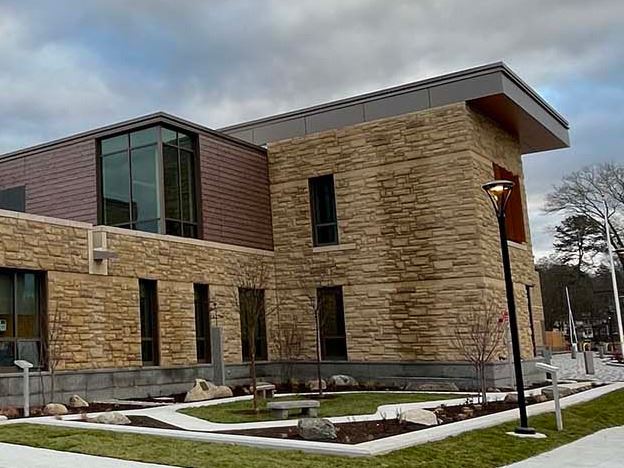


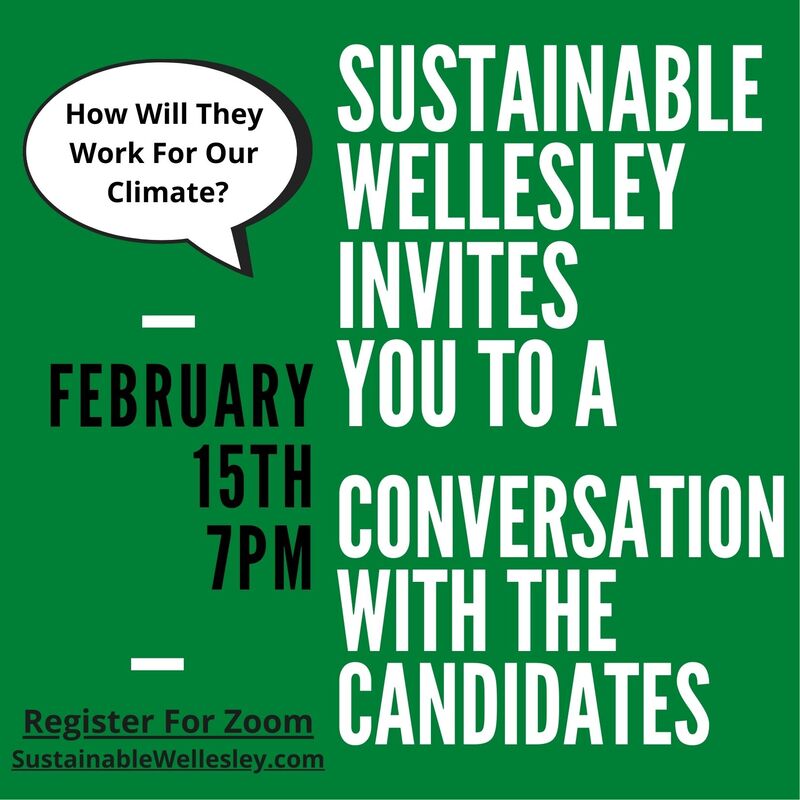

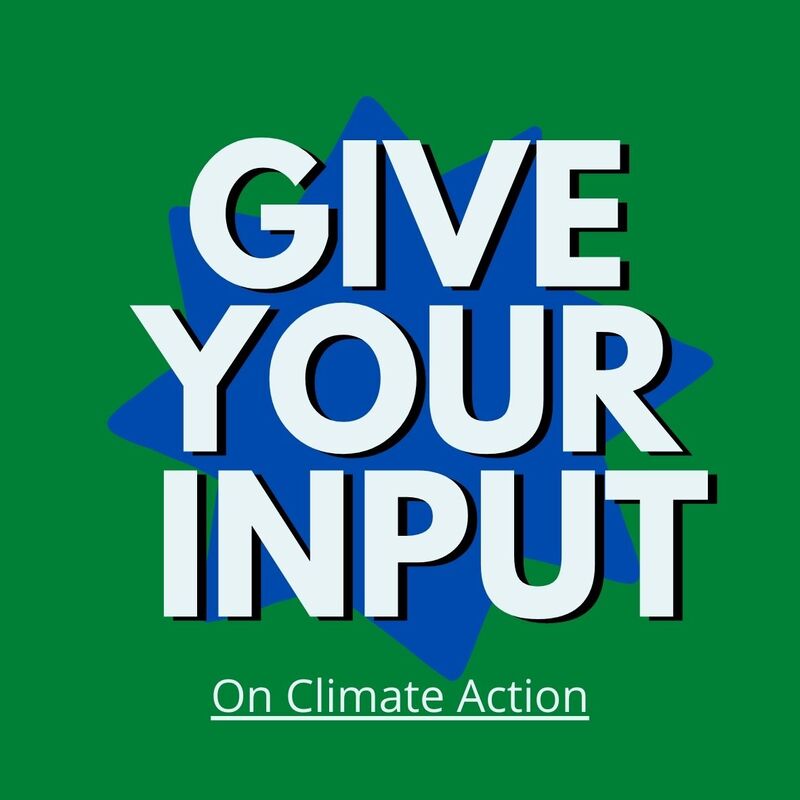
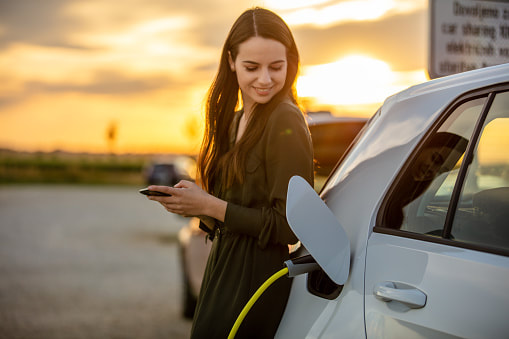
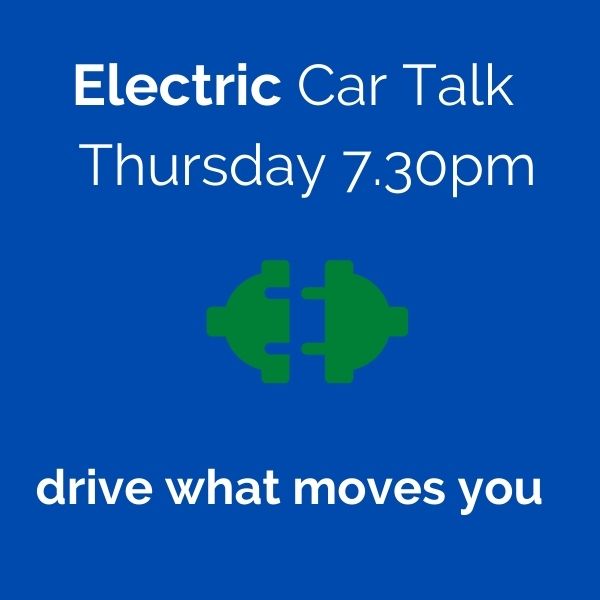

 RSS Feed
RSS Feed